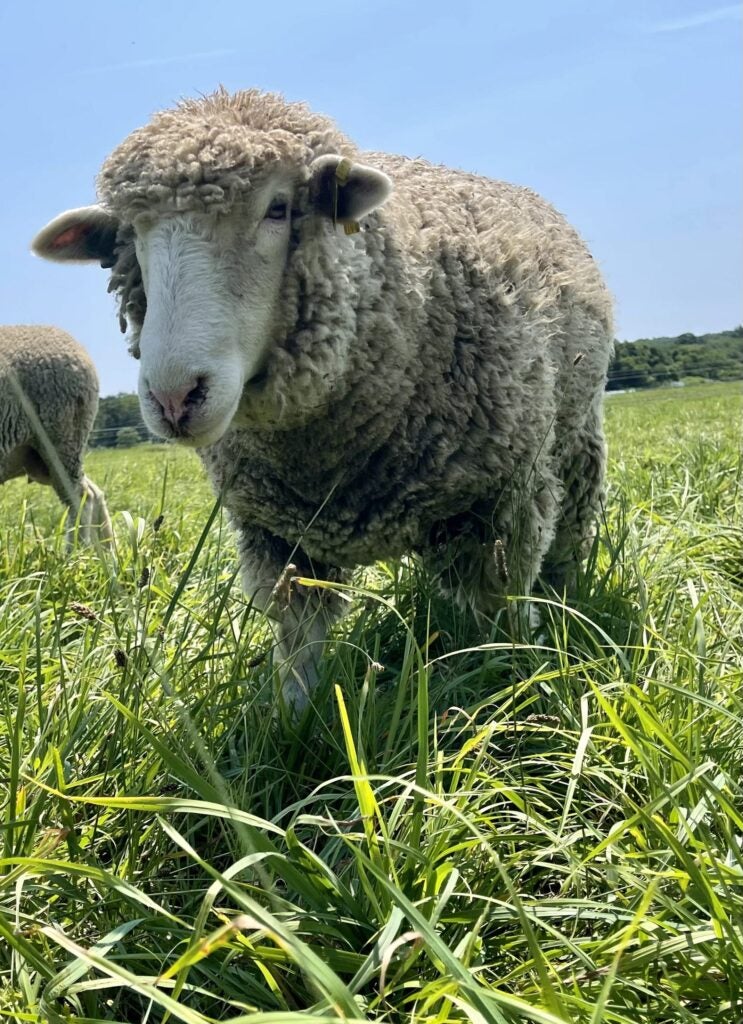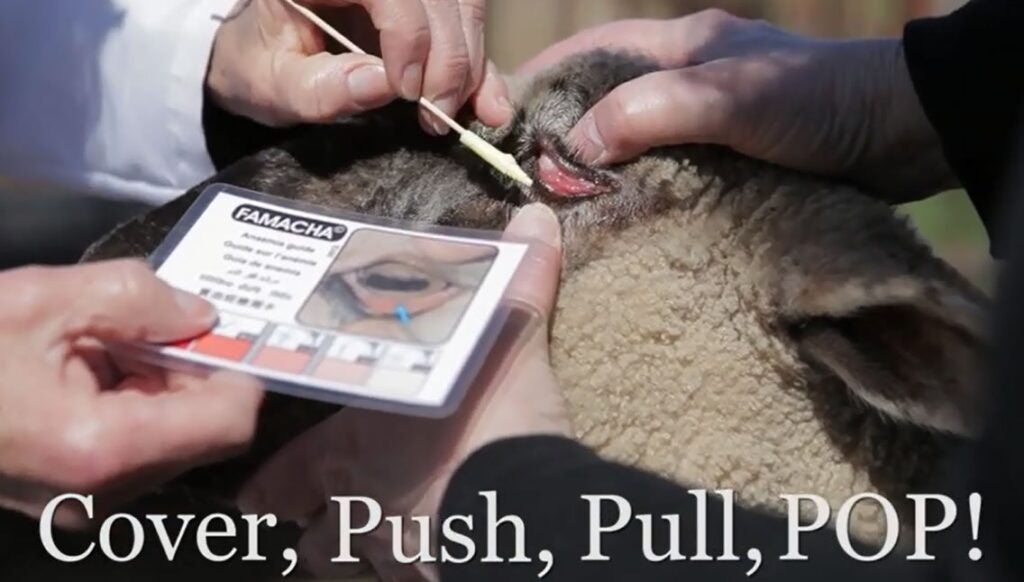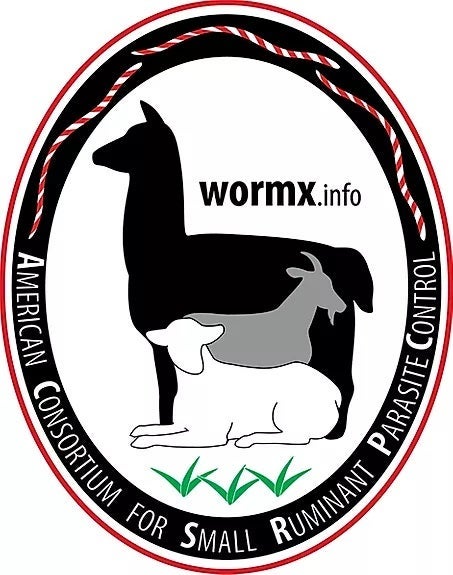Learn more about our online English training program for FAMACHA© Certification and Español FAMACHA© Programa de Entrenamiento
Why Worry About Parasites?

Gastrointestinal nematode (GIN) parasites such as the barber pole worm (Haemonchus contortus), are a serious problem affecting small ruminant production throughout the Northeast region and world. These parasites cause poor growth, anemia, and death in severe infections and limit the ability of producers to raise sheep and goats on pasture.
Growing and widespread resistance to chemical dewormers, coupled with producer wishes to reduce or eliminate reliance on these drugs, has created a need for alternative and integrated parasite control practices.
Our Program
URI Cooperative Extension and the Dept. of Fisheries, Animal and Veterinary Sciences collaborate with farmers and other partners from New England and the Northeast region to provide research and education on integrated parasite control management. This includes practices such as selective deworming and smart drug use, along with alternative controls including a variety of pasture management practices that reduce parasite exposure.
Online FAMACHA© Certification
FAMACHA© Programa de Entrenamiento

The FAMACHA© System – a method for estimating the level of anemia in sheep and goats affected by barber pole worm (Haemonchus contortus) infection – is a crucial tool for selective deworming. The FAMACHA© card, developed in South Africa, was introduced to the U.S. by the American Consortium for Small Ruminant Parasite Control (ACSRPC); (https://www.wormx.info/).
This online training program was developed by Dr. Katherine Petersson and Dr. Anne Zajac, DVM, members of the ACSRPC, as part of a Northeast SARE grant and is administered by the University of Rhode Island. The ACSRPC fully endorses the program for those who are unable to attend a workshop. Click here for details.

